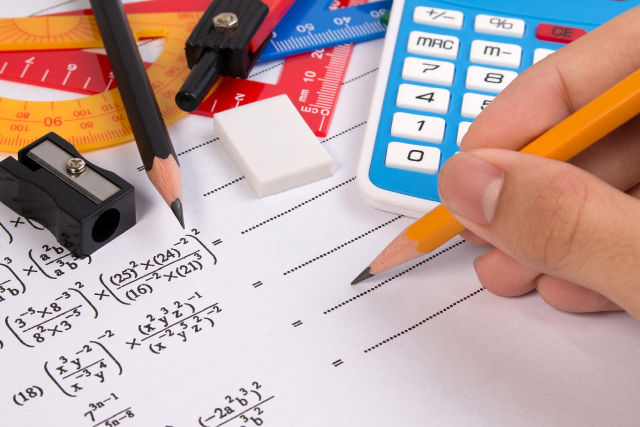Scoring an A1 in math exams is a significant goal for many secondary school students. However, achieving this grade requires more than rote memorisation or a basic understanding of mathematical concepts—it demands strategic approaches, effective study habits, and a deep comprehension of mathematical principles.
In this article, we will explore various strategies tailored to help secondary school students excel in their math exams and secure the coveted A1 grade.
Create Study Notes
Students should create concise study notes summarising key concepts, formulas, and problem-solving strategies. Writing down information in your own words helps reinforce understanding and serves as a handy reference during revision sessions.
Active Learning
Passive learning methods like reading textbooks or listening to lectures are often insufficient for mastering math; they require significant effort but slow down your learning speed.
We recommend students engage actively with the material instead. This can be done by solving problems, participating in class discussions, and explaining concepts to peers. Ultimately, active involvement enhances understanding and retention, leading to better performance in exams.
Practice
Practice is key to excelling in math.
Students should regularly solve problems from textbooks, workbooks, and past exam papers. It is best to set aside dedicated study time for math each day and tackle problems of varying difficulty levels to build confidence and proficiency.
Seek Help When Needed
It’s essential for students to recognise when they need help and to seek assistance promptly. Ask questions in class, attend extra help sessions with teachers, or enrol on tuition classes. By addressing doubts and misunderstandings early on, you can nip problems in the bud and prevent them from snowballing into larger issues later.
Utilising Resources
Schools and tuition centres often provide a wealth of resources, including online tutorials, educational websites, and instructional videos; students should make full use of these resources to expand and deepen their knowledge. Additionally, students can use math-specific apps or software that offer interactive learning experiences and practice problems tailored to individual skill levels.
Break Down Problems
Students must learn to break down complex problems into smaller, more manageable parts.
To do so, students should identify the given information, determine what needs to be found, and devise a step-by-step plan to solve the problem systematically. Do remember to show all your work on paper—marks are allocated for both your working and final answer.
Develop Problem-Solving Techniques
Familiarise yourself with various problem-solving techniques such as guess and check, working backwards, drawing diagrams, and using logical reasoning. It is also critical to try out different types of problems to broaden your problem-solving repertoire and boost your confidence in tackling unfamiliar questions.
Stay Organised
Organisation is crucial for effective studying. This refers not just to the organisation of textbooks and study materials for optimal efficiency—it is also recommended to maintain a strict study schedule so sufficient time is allocated for math revision leading up to exams.
Simulating Exam Conditions
We highly recommend preparing for the exam environment by simulating exam conditions during practice sessions. Try to complete timed practice papers under exam-like conditions, such as without access to notes or calculators. Familiarising yourself with the format and time constraints of the exam can help alleviate anxiety and improve performance on the day of the actual test.
Reflect on Mistakes
Review your mistakes from practice tests and homework assignments thoroughly. By understanding why errors were made, you can learn from them and avoid repeating the same mistakes in future exams.
It is also beneficial to seek feedback from teachers, tutors, and peers to gain insight into areas that require further improvement.
Conclusion
Scoring an A1 in math exams requires dedication, perseverance, and effective study strategies. By mastering fundamentals, actively engaging with the material, practising regularly, seeking help when needed, and utilising available resources, secondary school students can enhance their mathematical skills and increase their chances of achieving academic success. With the right mindset and strategic approach, earning top grades in math exams is within reach for every motivated student.
If you need extra help and guidance with math, reach out to us at Miracle Math. We are a math tuition centre in Singapore offering primary 5 and primary 6 math tuition. Additionally, our secondary mathematics tutor offers E-Math and A-Math tuition classes.
